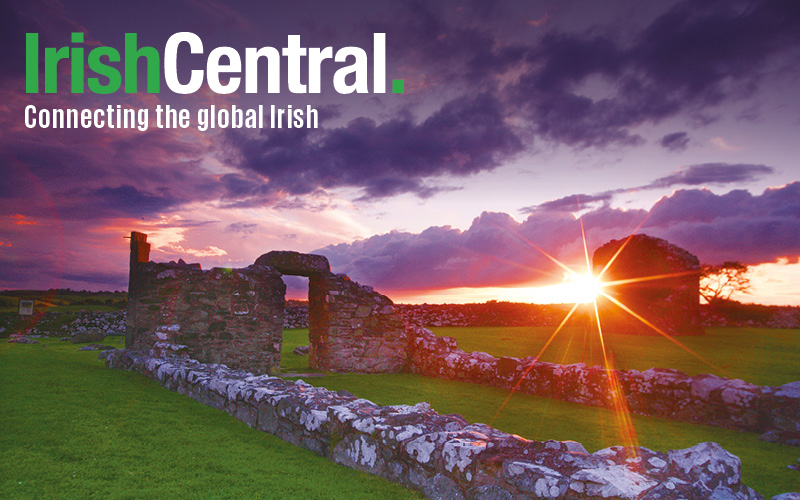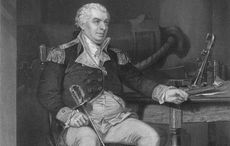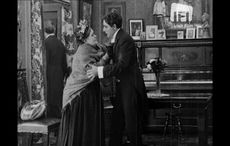Irish republican leader Michael Collins once revealed that he felt accounts of violence towards Catholics in Northern Ireland to be “exaggerated,” denying the requests of senior republicans in the North to visit Belfast and witness the trouble first hand.
The revelation was made by Liam Gaynor, a chief organizer of the Irish Republican Brotherhood in Northern Ireland following the 1916 Easter Rising, during in an interview with Co. Derry priest, Fr. Louis O’Kane.
In the 1960s, Fr. O’Kane carried out a series of interviews with over 100 former members of the Irish Volunteers. The interviewees were all Volunteers based in the North who had been active from the Easter Rising until the War of Independence.
The collection of interviews is an important addition to Irish history and contains vital evidence to further understanding of the events of the early 20th century, but up until now they were not publicly available.
Not unlike the Boston College Oral History Project, taped interviews with former IRA and Loyalist members about their experience during the recent Troubles, Fr. O’Kane carried out interviews with the volunteers on the condition that the conversations not be released to the public until after all their deaths.
Following the priest's death the tapes were under the protection of the late Cardinal Tomás Ó Fiaich at Maynooth and Armagh and were left to the Cardinal Tomas O Fiaich Memorial Library and Archive in Armagh upon his death.
Next weekend a conference in Co. Armagh will for the first time publicly investigate and discuss the contents of these tapes that have only been accessible to certain researchers for the past 50 years. The tapes were digitized and have been available to researchers at the Ó Fiaich Memorial Library and Archive since 2013.
Once, when speaking about his interview with Gaynor, Fr. O’Kane recalled the IRA man's assertion that Collins did not always believe that the violence faced by Catholics in Northern Ireland was as bad as they made it out to be.
"He said often he told Collins about how harrowed the Catholics were in Belfast, and asked Collins to go there and see for himself, and that if he did the IRA of that city would furnish him with whatever guard he’d require; but he did not accept the challenge," O’Kane said.
"Collins always considered that the stories about the pogrom were exaggerated and the only time he came to the north was when he was standing, during the Treaty, as Sinn Féin candidate for Co. Armagh."
Despite this, other republicans in the North believed that Collins was determined to ensure their safety and was even willing to break the terms of the Treaty if it meant protecting republicans in the six countries.
Thomas J. Kelly, a Co. Derry volunteer told O’Kane he spoke to Collins a few days before his death in Cork in August 1922 and Collins told him "he still had the six county problem very much in the front of his mind."
"He told us that with the Civil War on his hands he couldn’t do all he wished to do for the north, so for the time being he was calling off military action and resuming the political talks with Craig," Kelly said.
"If, he said, the political weapon against the northern government failed, the Treaty could go to hell. He’d break that Treaty rather than let the north down. I was present when Collins said that ..."
"The fact that these two northern divisions were wholly in the six counties area and that these were the only two divisions that were pro-Collins would prove that they believed Michael Collins when he said it was his intention to help the north to the utmost," he added.
On the release of the tapes late last year, Roddy Hegarty, the director of the Ó Fiaich Library said, "Fr O'Kane was not only a passionate historian exploring many aspects of the local past, but he was also a creator of historical documents. The most important of these are his collection of recordings with men and women, although primarily men, who had taken part in the struggle for Irish independence 1913-21.”
"No doubt his [Fr O'Kane's] interest in history and his position as a priest gave him the opportunity to develop relationships and build the confidence required to carry out the work of interviewing and recording these men. He traveled from Belfast to Donegal to speak with and record a variety of respondents creating a unique account of this pivotal period in Irish history."
— LivingLegacies (@LivingLegacies3) October 20, 2015
This weekend’s conference in Armagh and the further talks on the tapes to take place throughout 2016 are a part of a two-year initiative by Ó Fiaich Library and Archive, the Irish Volunteers Centenary Project.
H/T: Irish News.




Comments